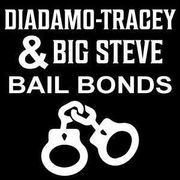How Violation, Misdemeanor, & Felony Offenses Differ

When you’re charged with a crime, figuring out a suitable defense can be quite challenging if you aren’t familiar with the terminology being used to describe your alleged wrongdoing. One of the first things you should understand upon being arrested is the difference between a violation, misdemeanor, and felony. This is important to know, as the classification your offense falls under will influence the consequences you face and your consideration for bail. Below is some insight into how each type of crime is distinguished from one another.
What Are the Differences Between Violations, Misdemeanors, & Felonies?
Violations
This is the least serious kind of offense in the eyes of the law. Violations often refer to infractions involving acts like speeding, littering, neglecting to comply with building codes, and jaywalking. The only punishment associated with these incidents is financial, which means no jail time or bail will be attributed. Although violations are not technically a crime, it’s still a good idea to seek legal help to avoid increased insurance rates and a possible license suspension.
Misdemeanors 
A misdemeanor is a petty offense that only carries a jail sentence of up to one year, which is to be served in a county jail. Usually, you will be charged with a misdemeanor if you were arrested for a crime such as assault and battery, drinking and driving, or shoplifting. The court may also impose a fine as part of the penalties. Under a new Connecticut law, courts can no longer assign bail to misdemeanor offenders unless they are determined to be a flight risk, their charges are related to family violence, or they are likely to obstruct justice or harm themselves or someone else.
Felonies
Felony charges are reserved for the most serious types of crimes, including kidnapping, murder, and arson. Felonies are divided into classes from most to least serious. If you are arrested for a felony offense, a conviction can mean thousands of dollars in fines and up to life in prison depending on which class your charge is categorized under. Felony bail can be expensive, oftentimes, five to 10 times the amount of a misdemeanor bail.
If you have been given the opportunity to post bail after being arrested, a professional bondsman at DiAdamo-Tracey & Big Steve Bail Bonds can help. They will work with you and your loved ones to get you released from jail and back into your everyday routine as quickly as possible. They possess extensive knowledge of the Connecticut criminal system and have been entrusted to assist the residents of East Haven with all their bail needs for over 60 years. Call (203) 787-2245 to learn more about the bail bonds process, or visit their website for additional information on the services they provide.
About the Business
Have a question? Ask the experts!
Send your question

